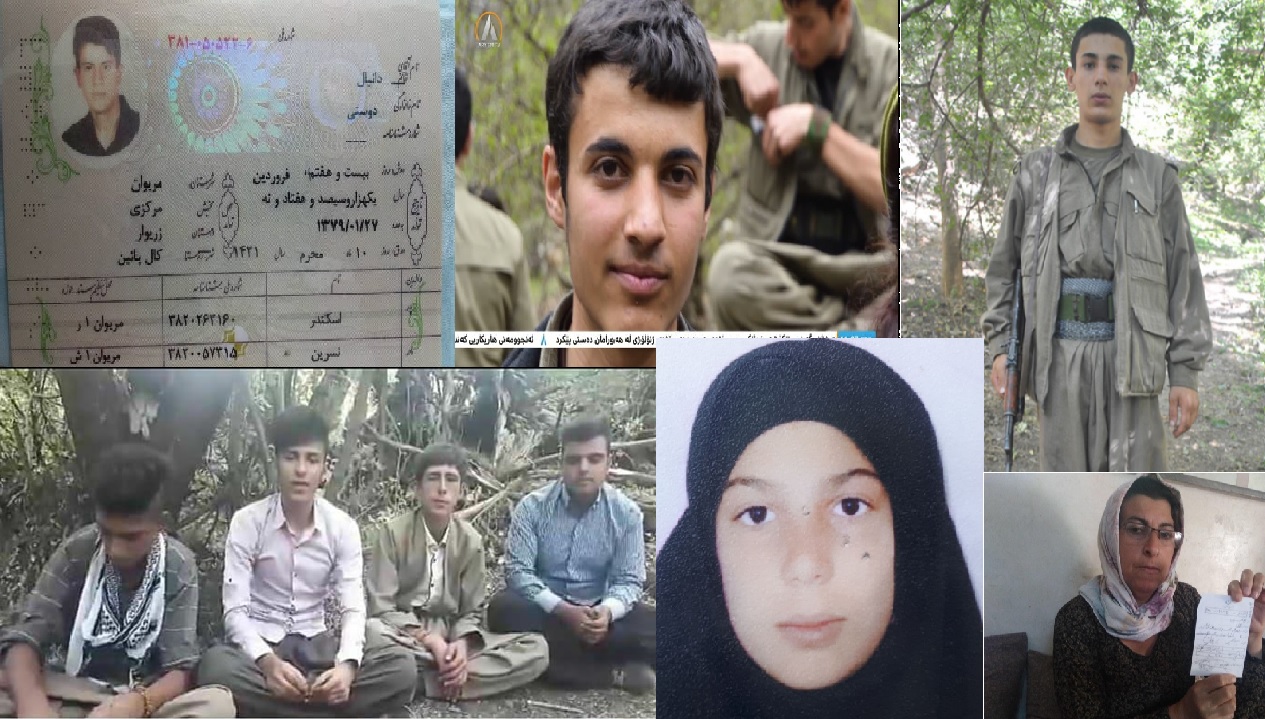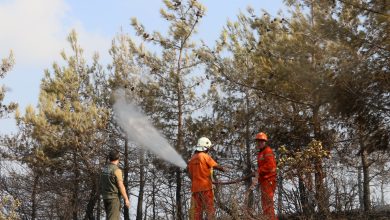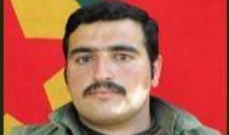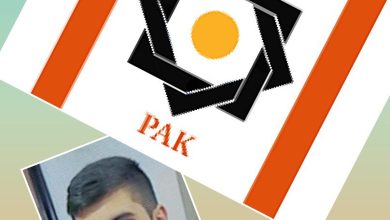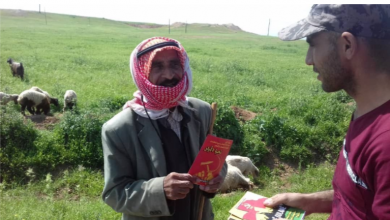Kidnapping of minors and deception of young people in all countries with Kurdish minority and the presence of PKK-affiliated organizations continue.
This happens regularly in Iranian Kurdistan, where Iranian Kurdish teenagers are influenced and tricked both through social media platforms and by local operators who deliberately target them to later move to the Qandil region without the knowledge of their families. where the PKK camp and headquarters are located.
war crime
In 1977, the Additional Protocols to the 1949 Geneva Convention prohibited the military recruitment and use of children under the age of 15.
Additional Protocol II of 1977 states: “Children who have not reached the age of fifteen shall not be employed in armed forces or groups, nor shall they be permitted to participate in hostilities.”
This crime, which has been revealed mostly by the media and international activists’ focus on Syria, where the PKK has established a semi-autonomous region through its Syrian branch of the PYD.
In Syria, cases have come to light where the PYD is trying to replace dead fighters with children, and this has not gone unnoticed by international human rights groups.
A 2015 Human Trafficking in the United States report confirmed, based on unconfirmed reports, that Kurdish children are sometimes abducted and forced to join PKK forces. In a 2016 report, the US stated that the YPG/PKK continues to recruit and use boys and girls, including children under the age of 15. According to this report, YPG/PKK took these children to indoctrination, brainwashing and training camps. Forced employment of children by the YPG/PKK has also been documented in numerous international and Security Council reports. Human Rights Watch (HRW) has also confirmed that it has witnessed an “alarming increase in the employment of children” by the PKK/YPG. The organization called on the PKK group to “immediately remove children from their ranks and prevent their recruitment, including from families under their control in war camps.” And finally, Virginia Gamba, the UN Secretary-General’s Special Representative for Children in Armed Conflict, met with Mazloum Abdi in Geneva and signed an agreement to end the use of child soldiers in 2019.
PJAK signed a convention
PJAK has signed the commitment document written by the Swiss non-governmental organization “Geneva Call” affiliated to the United Nations. This document promises to protect minors in armed conflicts. On April 25, 2015, in the Kurdistan Region of Iraq, a Geneva Call delegation met with the highest representatives of the PJAK armed wing to formalize this commitment.
According to reports, the armed wing of PJAK has used child soldiers in the past. The organization promised in 2015 to prevent children under the age of 18 from participating in the war, but it seems that it has not kept this promise.
“We are very pleased to receive this commitment today from a region that has been deeply affected by armed conflict and violence,” said Elizabeth Decry Warner, president of Geneva Call in 2015.
Iranian Kurdish children, the target of PJAK
As mentioned, Syrian Kurdish children are not the only children who are recruited into child soldiers by PKK-affiliated organizations. The employment of minors also continues in Iranian Kurdistan, a country and region that may attract less international attention and whose complex political climate may make reporting on human rights violations more difficult.
Throughout 2021, Iran Kurdistan Human Rights Watch has conducted dozens of interviews with families of children exploited by the Iranian branch of the PKK (PJAK). The rest of this report provides an overview of minors employed by PJAK.
Shirwan Seyedipour
Shirwan Seyedipour (17 years old) ran away due to being in debt at a young age and tried to support his family. According to his father, he was able to communicate with his parents in Syrian Kurdistan. He told them that he is currently in Syria and injured and wants to come home. His family is waiting for his return, although they haven’t heard from him in months.
Peyman Jafari
16-year-old Peyman Jafari left his home in Urmia in 2018. According to PJAK, he died at the age of 17. His family has no hope of getting information about their son’s body. According to his brother, they have been in contact with PJAK’s forces in northern Iraq, who told them they do not know where he is buried.
Nian Darvishi
Nian Darvishi is one of the most shocking cases that we are currently investigating. Nian was a 13-year-old child who was abducted by PJAK forces who passed through his village. She is now 16 years old and is still among the members of PJAK. Nian’s family has not heard from her since she left home three years ago. This family has gone to Qandil many times, but they have not been able to meet their daughter.
Asrin Muhammadi
13-year-old Asrin Muhammadi was less fortunate. Although this case is an old one, because Asrin was kidnapped in 2017, this case still causes people’s anger in Iranian Kurdistan. This story has become a symbol for many other victim’s families, because Asrin’s mother was especially brave to speak openly about her daughter’s abduction. We have promised her that we will continue to pursue the case of Asrin Muhammadi as a missing person, because there are various news about her death and no body has been handed over. Asrin’s mother believes that she is probably still alive and imprisoned against her will.
Others
Iranian Kurdistan Human Rights Watch is currently talking to several other families who have reported the disappearance of their minors, but do not want their names published in the media/internet.
International human rights organizations can contact the IKHRW for a list of information.
Since PJAK had confirmed in its Geneva Convention not to use young children in armed activities and to protect them in any way, it can be concluded that this convention is violated by observing the amount of killing of Iranian Kurdish young children in Turkey.

